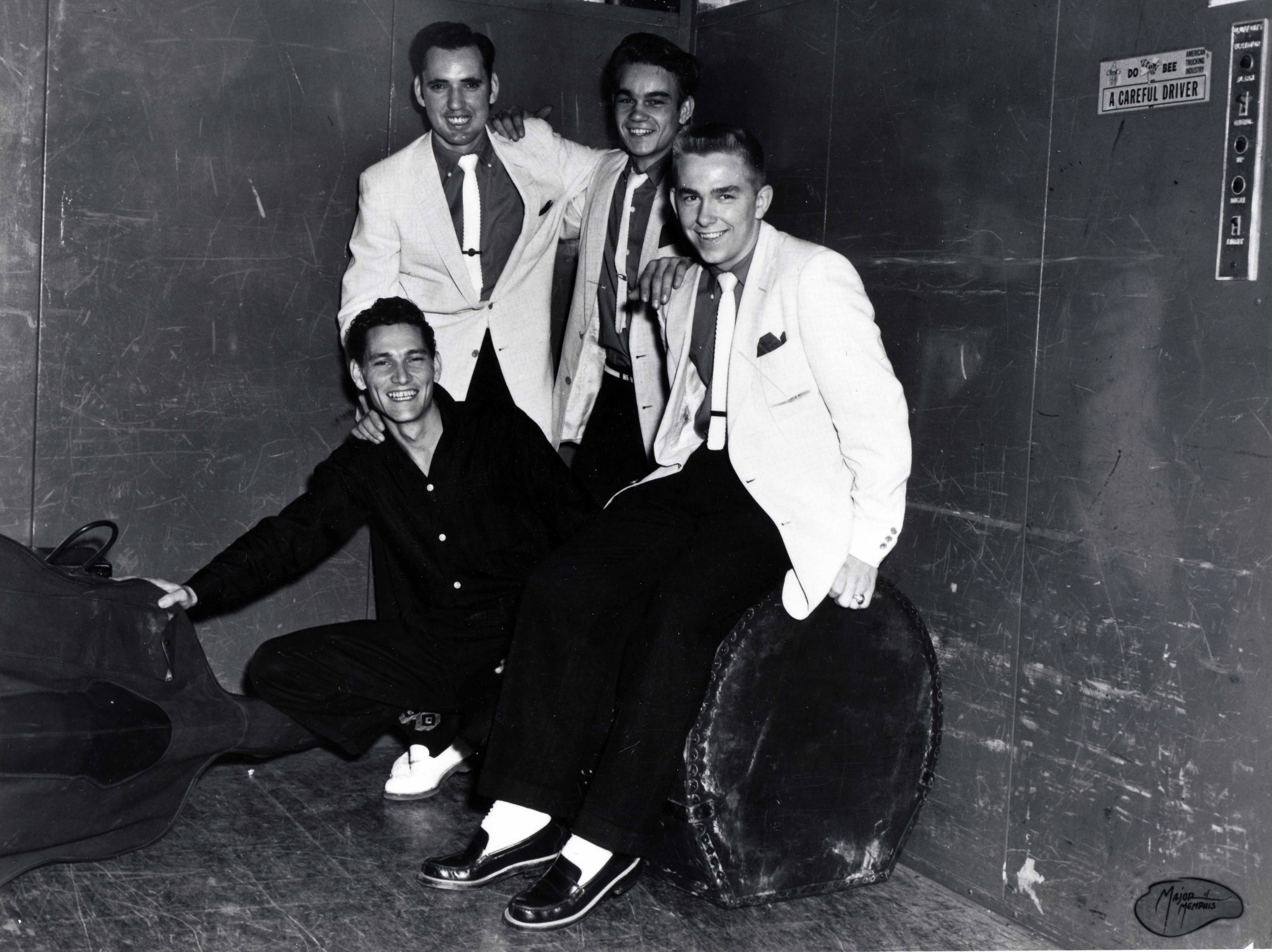On Monday, June 30th, friends and colleagues of the late Roland Janes will jam in his honor at the Levitt Shell. The free event is the work of Janes’ friend and collaborator J.M. Van Eaton. Both men were session musicians at Sun who became rock royalty when another day’s work resulted in “Whole Lotta Shakin’ Going On” and unleashed the Killer on polite society. Friends from Roland’s life and career will honor him as a guitarist, an engineer, a businessman, and as friend. He was that and much more to so many. The list of invitees tells the tale.
Sun-era stalwarts George Klein, Travis Wammack, Sonny Burgess & the Legendary Pacers, and Hayden Thompson. Smoochy Smith, who moved to Stax after working at Sun, went on to write “Last Night,” the song that broke Stax nationally. Smoochy’ll be there.
Van Eaton and Janes were old friends and participants in the birth of rock and roll.
“Roland and I started at the same time in the music business,” Van Eaton says. “I was still in high school. Tech High School. Billy Riley had just got a record deal with Sun and I met Roland at the studio one day when I had my little school band in there. They heard me play and Riley didn’t have a band. So he started putting his band together and he asked me if I wanted to be a part of his band. Roland was the guitar player. The bass player in that band was Marvin Pepper. Billy hired him and that was the original Little Green Men for ‘Flying Saucer Rock n Roll.’ So I met Roland back in 1956, probably.”

Billy Lee Riley’s Little Green Men: Riley, Roland Janes, Marvin Pepper, and J.M. Van Eaton
Soon after, the backing band made history.
“We’d probably been together about two or three months and Jerry Lee Lewis walked in. He didn’t have a band. So they called us to the studio to back up Jerry. We thought this was an audition to see if he had any talent. Man, we cut this song called “Crazy Arms,” which was his very first record, and that took off enough that they wanted to do the second one. The second one was Whole Lotta Shakin’ Going On. So we both played on that. To fast forward to when that kind of played out, Roland and I played in band together in Millington at Fleet Reserve. This was a club band. We got a picture. He had already started Sonic Studio by then. But we played three nights a week for five years at this one place out there. We were packing them in every night.There were four of us in that band, and three of us are still living. We’re gonna bring those guys in.”
Also on the bill are several artists who Roland produced. John Paul Keith was one of Roland’s last real sessions before his death last year. Jon Hornyak was one of many Missourians who found their way to Memphis to work with Janes. His band Interstate 55 will also play.